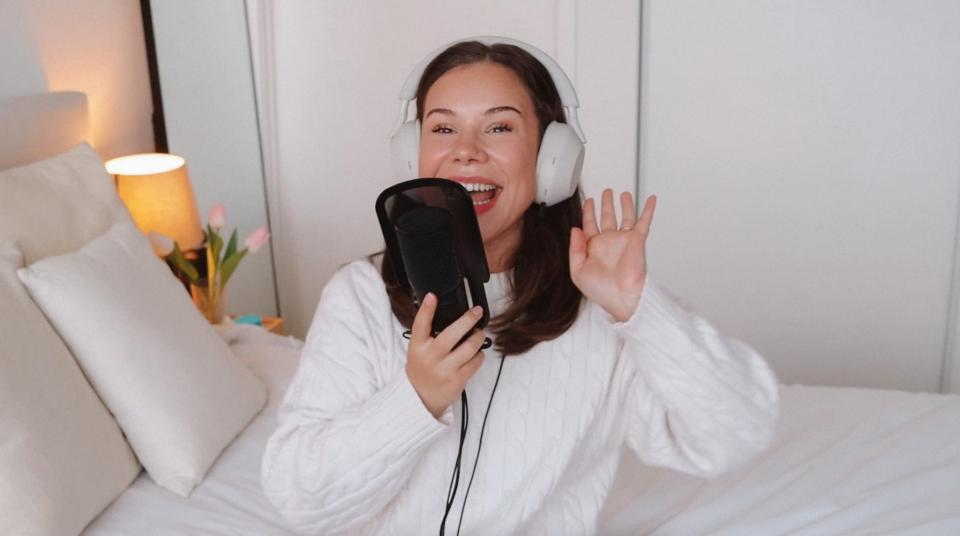Some TikTok creators surprisingly support a TikTok ban to protect national security and help people ‘live in the moment again’

Tess Barclay, an influencer and social media consultant, has amassed over 135,000 followers on TikTok by posting tips several times weekly about how content creators can grow their businesses. After years of posting, she’s landed a number of sizable marketing deals and built a social media consultancy for corporate clients.
Barclay calls the possible ban of TikTok that President Biden signed into law in April “a really big deal.” But despite the direct impact it could have on her livelihood, she’s largely indifferent about the law.
“It's just a fact that apps will always change, algorithms will always change, and apps will shut down and new apps will come,” says Barclay, who believes that content creators should use several different platforms to ensure that they’re not overly dependent on one. It’s “just part of the game of being in social media,” she adds.
A small number of social media content creators, it turns out, are okay with a possible TikTok ban. Their reasons are many: It’s the inevitable outcome of capitalism; they believe TikTok poses a threat to national security; or they think that without TikTok, people may spend less time on social media and therefore avoid some of the conspiracies and outrage posted there.
In late April President Biden signed a law that gives TikTok’s China-based owner, ByteDance, nine months to find a U.S. buyer for its U.S. operations or face a ban in the country (the law comes with an option to extend the sale deadline 90 days). TikTok and a group of creators funded by TikTok have challenged the new law in separate lawsuits, but have yet argue their cases in court.
The vast majority of TikTok creators who’ve posted about the ban, however, agree with TikTok that it would be excessive and unconstitutional. Many of those who make a living on the service also complain that a ban would hurt their businesses.
On TikTok, a search for “TikTok ban” returns creators making emotional appeals for the platform to remain in the U.S. When Congress was debating the ban, some users showed up outside the Capitol to protest.
If ByteDance loses the lawsuits against the latest U.S. legislation, it’s unclear whether it will sell its American business. The company has suggested China’s government would oppose a sale, and that the service would instead exit from the U.S.
One creator who favors a ban is John Fowler, who has a news startup called International Intrigue. Fowler supports the federal government’s possible ban because he says TikTok is a national security threat. For four years before becoming a creator, Fowler was an Australian diplomat in Beijing and Shanghai. While there, he came to believe that ByteDance is entangled with the Chinese Communist Party and that China’s government wants to undermine Western nations.
“I do believe that China is an adversary and it’s trying to influence and impact the West and U.S. politics,” he says. “If you have a tool—an algorithm—in the hands of a foreign government, it’s a balancing act between national security and people’s livelihoods.”
International Intrigue has only posted 10 videos on TikTok and has a paltry 46 followers there, largely because Fowler says he opposes TikTok presence in the U.S. and the risks he fears it creates. Because his business is based on events and newsletter sponsorships, TikTok’s demise wouldn’t have much of a financial impact on it, Fowler says. Instead, he could focus on YouTube and Instagram, where International Intrigue has just 702 subscribers but often garners over 10,000 views on its videos.
“I'm not massively worried about there being nowhere to kind of create this type of content online. Things will pop up,” Fowler says. “I have YouTube Shorts making a big dent and then Instagram Reels.”
TikTok did not respond to Fortune’s request for comment about some of its users supporting a ban.
Meanwhile, a small number of TikTokers say they support a TikTok ban for mental health reasons. This faction argues that kicking the service out of the U.S. would encourage users to disconnect and get more fresh air.
“Not to be a bummer but I think TikTok getting banned might be a good thing maybe we will live in the moment again,” creator Landon Drake, who has 11,000 TikTok followers, flashed on screen during a TikTok video in which he danced around his home. Drake told Fortune he is not a full-time creator, so a ban wouldn’t significantly hurt him financially.
TikTok users who mentioned the health benefits of a TikTok ban generally didn’t discuss a possible hole in their feel-good theory about a shutdown: TikTok users could merely switch to other social media platforms, which are known for negative mental health consequences, and spend as much time on them as they did on TikTok.
Barclay, who is less critical of social media, is sees no problem with moving the discussion now taking place on TikTok to other platforms. In the process, she’d lose a deal she has with Instagram to promote its services on TikTok. She declined to discuss the financial details of that arrangement. But if TikTok is banned, her Plan B would be to spend more time posting on YouTube and to try to grow her consulting business.
“The reality is this will be quite a long process,” she says of a TikTok closure.
This story was originally featured on Fortune.com

 Yahoo Finance
Yahoo Finance 